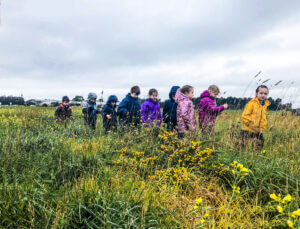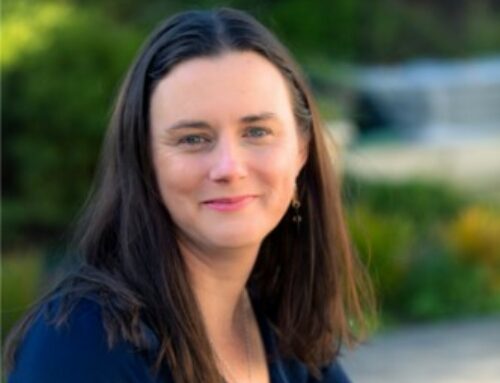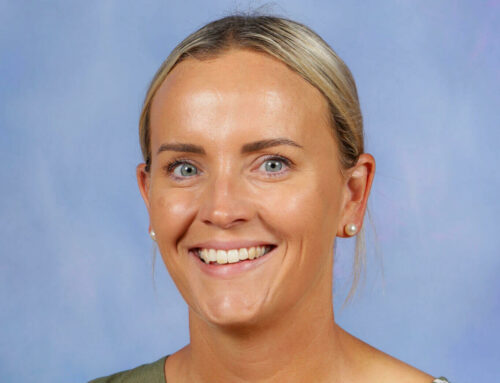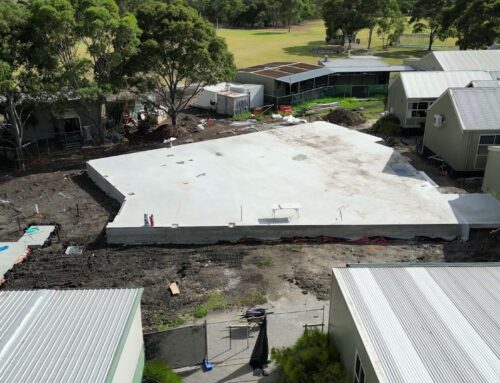Set in beautiful, natural
surrounds, this school
teaches children to go
deeper in their learning
“We welcome students into our school when they’re three years old,” says Nicole Timbrell. “They come to us with a great sense of awe and wonder. They are curious and playful, have deep imaginations, they like to observe and they’re even ambitious, they want to try things and do things”.
These littlest of students are already demonstrating the mindset and dispositions of lifelong learning. “Those qualities are valued and nurtured all the way through and we do that by providing a whole-school approach,” says Timbrell, Deputy Principal – Innovation and Design at Cornish College, a coeducational, independent school for students from the 3 year old Early Learning Centre program to Year 12.
Set on almost 40 hectares of natural parkland and wetlands at the gateway to the Mornington Peninsula, Cornish combines inquiry-based learning and concept-based curriculum informed by the Rings of Sustainability philosophy that “thinking is more than ability”.
“We provide a curriculum beyond boundaries. Beyond subjects. We use inquiry learning that begins in our Early Learning Centre,” says Timbrell. For example, younger students go on a weekly walk around the extensive grounds and teachers will observe what captures their interest, noticing the questions they ask. “Whatever the curiosity was of that week, the teachers will then formulate a lesson based on that,” says Timbrell.
As a result, students learn to be open to inquiry, developing critical and creative thinking skills which allow them to solve problems and adapt to changing circumstances. “When we’re most proud of them is when we can see their metacognition made visible. So not only can they have a thought, but they’re able to express the type of thinking behind what they’ve just articulated.”
Director of Student Learning Laurent Julicher says “metacognition is the absolute thread that drives everything.” Using the classic analogy of the iceberg, he says that a lot of traditional learning can be centred around the top, or acquiring knowledge. “But inquiry means you have to go well beneath the surface, you’ve got to look at the structures, the behaviours. It’s only once you have that depth of understanding through your inquiry that you can actually become quite informed about your stance or perspective. To me, that’s a really healthy model for lifelong learning. Things are never superficial, there’s always a story,” he says.
This whole-school approach extends beyond their VCE students to the broader college community as well. Cornish are currently developing a new strategic plan that includes the parent body and staff in their definition of learners.
“Our focus this year is to change the narrative of education and learning, not only in our school, but questioning assumptions about education,” says Timbrell of their ‘Cornish Conversations’ parent education evenings. “A lot of parents want to know their children are going to get an ATAR and we certainly provide that outcome. But we want to challenge the notion that that is the only valid way to measure learning and to prepare young people for life beyond school”.
A recent session saw a futurist challenge the idea of what the future holds in terms of workplace trends and how they need to collaborate and adapt to respond, while an upcoming session will examine the role of play in learning. “Play has got some really valid outcomes and benefits for people of all ages, including adults,” says Timbrell.
Continual staff education happens through a process called ‘Professional Unlearning’, which is inspired by the Alvin Toffler quote “the illiterate of the 21st century will not be those who cannot read or write, but those who cannot learn, unlearn and relearn.”
“If we want to provide an education of a different kind, we need to unlearn some of the practices and mental models that have been in place for generations,” she says. “Everybody is buying into the narrative of lifelong learning and unlearning and re-learning here at Cornish.”
As featured in The Age, Saturday 24 July 2021




